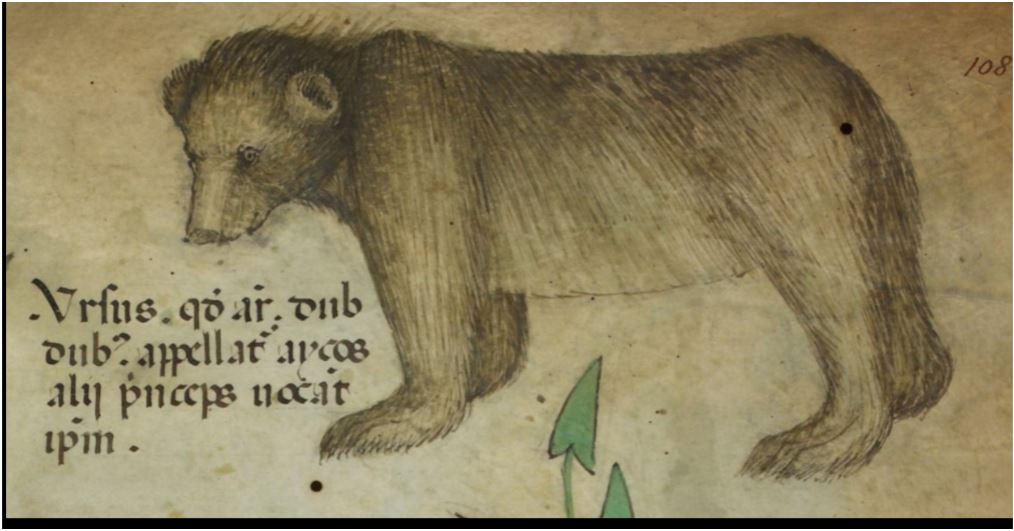
A bear stands on all fours in a medieval manuscript.
Literature Program Presents
Literature Salon: “You hunt me, and yet I wish you no harm”: A Bear Speaks Back In a Medieval Chronicle
A talk by Karen Sullivan, Irma Brandeis Professor of Romance Literature and Culture
Monday, February 24, 2025
Olin Humanities, Room 201
5:00 pm – 6:00 pm EST/GMT-5
According to the chronicler Jean Froissart, Sir Peter of Béarn, the half-brother of Gaston Phoebus, III count of Foix and X viscount of Béarn, was hunting one day in the Forest of Biscay when he killed a large bear. When he brought the animal’s carcass home back to his castle, his wife fainted and had to be carried off to her chamber. After she came to, she informed her husband that she needed to leave immediately on a pilgrimage with their two children and to take with them a fair amount of her wealth. She never returned from this trip. According to a squire associated with Gaston’s household, she explained to her servants that the bear her husband had killed was same one her father had once hunted. She added that, while her father was pursuing this bear, he had heard someone say, “You hunt me, and yet I wish you no harm.” 5:00 pm – 6:00 pm EST/GMT-5
Nowadays, we are familiar with animal rights arguments that inveigh against the morality of hunting. But what meaning did the words attributed to the bear in Froissart’s chronicle possess for its fourteenth-century audience? What is the relation between the language of chivalry employed by Gaston’s hunting manual and the language of justice invoked by the bear? How are we to understand who uttered the bear’s words? This talk will discuss these questions and more.
For more information, call 845-758-6822, or e-mail [email protected].
Time: 5:00 pm – 6:00 pm EST/GMT-5
Location: Olin Humanities, Room 201